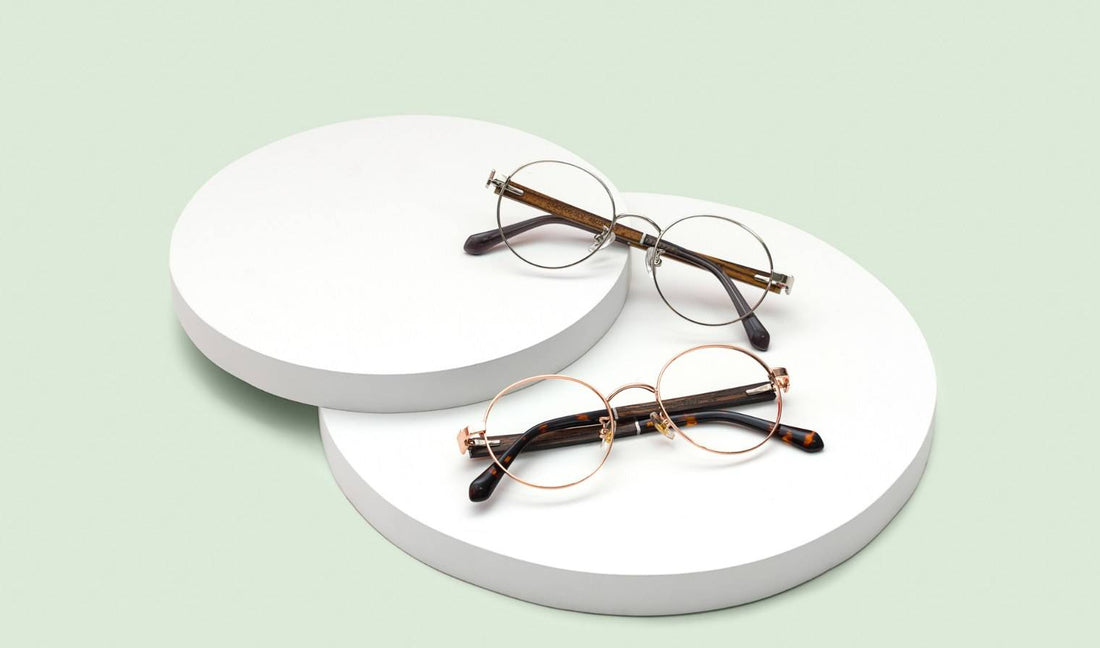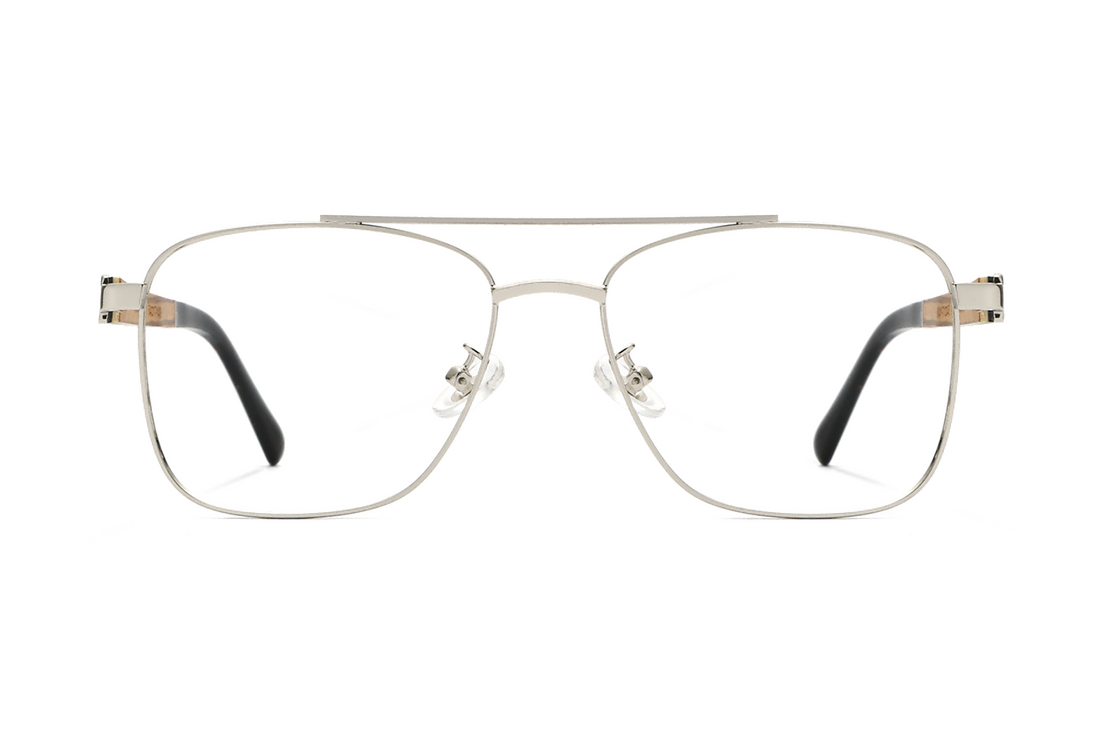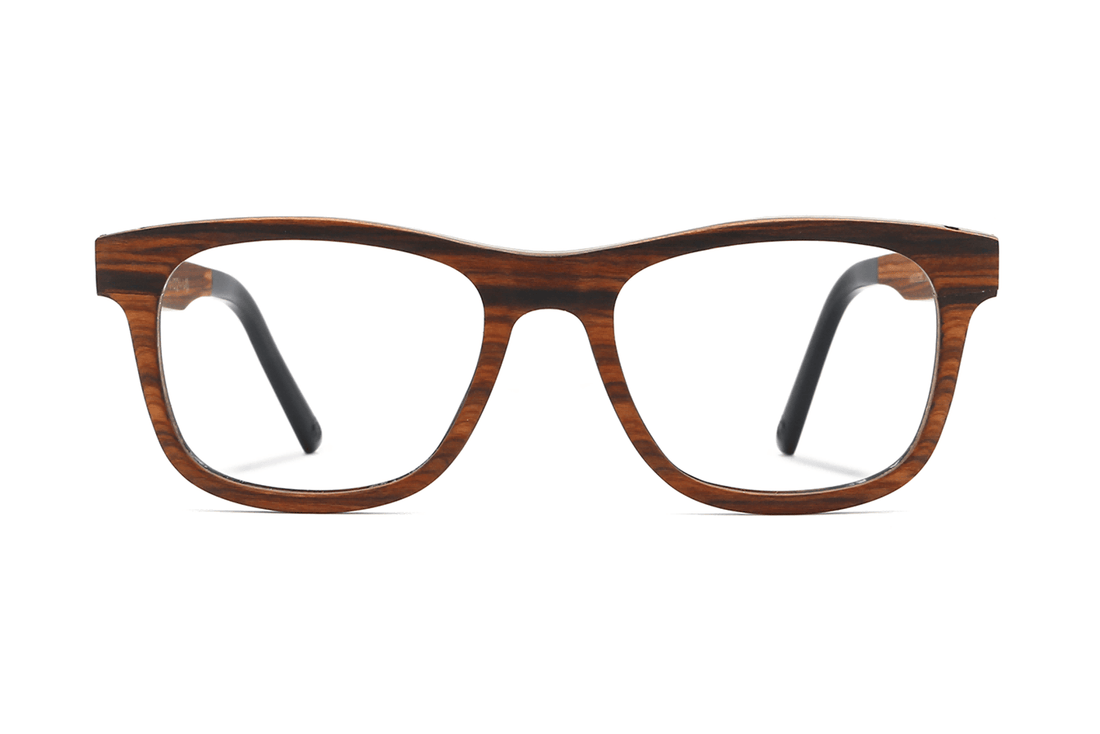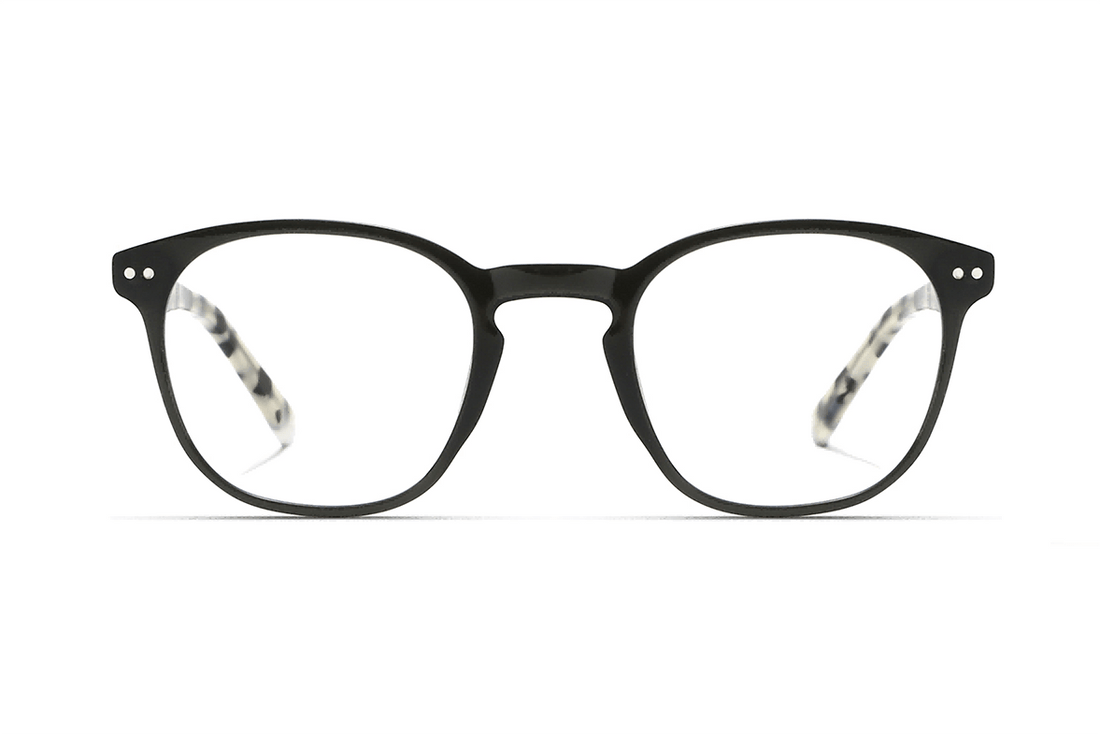
Shopping Green: How To Shop Eco Glasses Frames
How To Shop Eco Glasses Frames
7 min read • Updated on 21 January 2025 • Heba from Kraywoods
The realm of eyewear is undergoing a significant transformation, marked by an increasing shift towards sustainability. This transition is not merely a trend but a necessary response to the environmental challenges of our time. So, stay on to learn how to shop eco-friendly glasses.
As consumers become more conscious of their impact on the planet, the demand for eco glasses frames has surged, indicating a profound change in the industry's future. Adopting sustainable practices in producing eyewear is not just an ethical choice but a reflection of a growing awareness that every decision has consequences for the Earth.
Why Eco-Friendly Glasses are the Future
The urgency of transitioning to eco-friendly glasses cannot be overstated. Traditional eyewear manufacturing processes and materials exert considerable strain on the environment, from the extraction of raw materials to energy-intensive production methods. The shift towards eco glasses frames represents a crucial step in mitigating these impacts.
The eyewear industry can significantly reduce its carbon footprint and resource consumption by embracing sustainable materials and production techniques. Furthermore, this shift is fueled by consumer demand for products that align with their values of environmental stewardship and social responsibility, signaling that eco-friendly glasses are not simply a passing craze but the future of eyewear.
The Impact of Your Eyewear Choices on the Environment
Every pair of glasses you purchase has a backstory that extends far beyond the retail shelf. Eyewear's environmental footprint encompasses its lifecycle, from sourcing fabrics to removing or recycling old plastic frames. Traditional eyewear relies on petroleum-based plastics and metals mined under ecologically damaging conditions.
These materials contribute to pollution and deplete the planet of finite resources. In contrast to sunglasses, choosing eco glasses helps reduce this burden on the environment. By making conscious choices, consumers have the power to drive change in the industry, pushing brands to adopt more sustainable practices.
Understanding Eco-Friendly Glasses
Glasses earn the eco-friendly label through sustainable materials, energy-efficient manufacturing processes, and ethical labor practices. Endurable eyewear materials such as recycled metals, sustainably sourced woods, and biodegradable acetate lower the eyewear's environmental impact by minimizing waste and conserving natural resources.
Energy-efficient manufacturing techniques that employ renewable power sources diminish production's carbon footprint. Ethical labor practices address the human element of sustainability, promoting fair working conditions and equitable wages.
The journey towards eco glasses begins with the frame materials. Innovations in sustainable materials have opened up new possibilities for eyewear design. Bamboo, with its rapid growth rate and minimal need for pesticides, offers a renewable resource that is both lightweight and durable.
Recycled metals provide an alternative to virgin mining, reducing the demand for new resources and the environmental degradation associated with mining activities. Bio-based plastics, derived from renewable sources such as castor beans, present a lower-carbon alternative to traditional plastics, reducing the eyewear industry's overall ecological footprint.
Materials such as polycarbonate, derived from renewable sources, and recycled glass offer alternatives to traditional lens materials. Additionally, adopting digital manufacturing other technologies for lenses reduces waste and energy consumption, further enhancing the sustainability of eco-friendly glasses.
The Benefits of Going Green with Your Glasses
Choosing eco-friendly glasses benefits the planet and your health. Traditional eyewear materials can contain harmful chemicals and allergens that harm the wearer and the environment.
Eco-friendly glasses, made from non-toxic, hypoallergenic materials, offer a safer alternative. These materials reduce the likelihood of skin irritation and allergic reactions, ensuring your new pair of glasses will be comfortable and secure for extended periods.
For the Planet: Reducing Environmental Impact
The environmental benefits of choosing eco-friendly glasses are profound. Consumers can significantly reduce their ecological footprint by selecting frames and lenses made from sustainable materials produced through environmentally responsible processes.
This choice supports conserving natural resources, reduces pollution, and promotes a shift towards a circular economy in the eyewear industry. As more consumers opt for sustainable options, the industry is incentivized to prioritize eco-friendly practices, leading to broader environmental benefits.
The misconception that eco glasses lack style and variety is rapidly being dispelled. Today's sustainable eyewear brands prove that fashion and sustainability can go hand in hand. Designers leverage innovative materials and similar technologies to create stylish, contemporary frames that appeal to diverse tastes and preferences.
Whether looking for classic silhouettes or bold, avant-garde designs, a fantastic eco-friendly option doesn't compromise style or environmental integrity.
How to Shop for Eco-Friendly Glasses
Identifying genuinely eco eyewear brands requires diligence and research. Look for brands that share their manufacturing processes, source materials, and sustainability initiatives transparently. Certifications and memberships in environmental organizations can indicate a brand's commitment to sustainability.
However, it's essential to be wary of greenwashing, claims of environmental responsibility not backed by tangible actions. Thoroughly investigating a brand's practices and values can help you make informed decisions and support companies that are genuinely making a difference.
Certifications to Look For: A Guide to Eco Credentials
Navigating the eco-certification world can be challenging, but these credentials are essential for identifying authentic eco-friendly glasses. Certifications such as the Global Recycled Standard (GRS) for recycled materials, the Forest Stewardship Council (FSC) for sustainably sourced wood, and the Cradle to Cradle Certified™ product standard for overall sustainability performance assure a product's environmental and ethical integrity. Familiarizing yourself with these and other relevant certifications can help you discern which brands are committed to genuine sustainability efforts.
Online vs. In-Store Shopping: Which is Greener?
The debate between online and in-store shopping for eco eyewear centers on the carbon footprint associated with each option. Online shopping offers the convenience of accessing a wide range of sustainable brands from anywhere, potentially reducing the carbon emissions of traveling to multiple stores.
However, the environmental impact of shipping and packaging must also be considered. Conversely, purchasing glasses from a local store can support community businesses and reduce shipping-related emissions, but selecting eco eyewear options may be limited. Balancing these factors is critical to making the greenest choice for your circumstances.
Materials Breakdown
Wood Glasses: Why Wood is a Green Choice
Wood is a stellar material to explore for eco eyewear due to its sustainable characteristics. As a natural and renewable resource, wood can be responsibly harvested and sourced from managed forests, ensuring minimal environmental impact.
Its amazing natural durability and lightweight properties make it an ideal material for comfortable and long-lasting eyewear. Furthermore, wood's ability to be grown in diverse climates and its low environmental footprint enhance and protect its sustainability profile, making it a prime choice for environmentally conscious consumers. At Kraywoods, all our wood eyeglasses are made from recycled and sustainably sourced woods and are eco-friendly.
Recycled Metal Frames: Turning Waste into Fashion
Recycled metal frames epitomize the principle of turning waste into a resource. By reprocessing metals from various sources, including industrial scrap and end-of-life products, eyewear manufacturers can reduce the demand for new metal extraction, often associated with significant environmental and social costs.
Recycling metals conserves natural resources and requires less energy than producing new metals from ore, further lowering the carbon footprint of eyewear. This approach aligns with the circular economy model, where materials are used for as long as possible, maximizing their value and minimizing waste. At Kraywoods, all our metal eyeglasses are made from recycled metals and are eco-friendly.
Plant-Based Plastics: A New Era for Eyewear
The innovation of plant-based plastics marks a significant advancement in the quest for sustainable eyewear materials. Derived from renewable resources such as castor beans, corn, and sugarcane, these bioplastics offer a lower-carbon alternative to petroleum-based plastics.
Using plant-based plastics in eyewear frames reduces dependence on fossil fuels and introduces the possibility of biodegradability and compostability, further minimizing the environmental impact. As technology and production processes continue to evolve, plant-based plastics are set to play a pivotal role in the future of eco eyewear. At Kraywoods, we offer a stylish collection of eco-friendly bioacetate glasses crafted from plant-based acetate, seamlessly blending sustainability with fashion.
The Role of Packaging
Traditional eyewear packaging often relies on single-use plastics and non-recyclable materials, contributing to waste and environmental pollution. Packaging can be resource-intensive, involving multiple layers of packaging materials that are discarded almost immediately after purchase.
This approach is at odds with sustainability and circular economy principles, emphasizing reducing waste and efficiently using resources. Addressing the environmental impact of eyewear packaging is a critical component of the industry's shift towards greater sustainability.
Eco Eyewear Packaging Solutions
In response to the environmental challenges posed by traditional packaging, eco-friendly eyewear brands are adopting innovative packaging solutions. These include using recycled and recyclable materials, minimalistic design to reduce material use, and packaging that can be repurposed or composted.
Some brands even explore packaging-free options or reusable cases that serve additional functions, further reducing waste. These initiatives not only minimize the environmental footprint of plastic packaging but also align with consumers' growing preference for sustainable and responsible consumption.
Several pioneering brands are setting new standards for sustainable eyewear packaging. These companies are demonstrating that combining aesthetic appeal with environmental responsibility is possible.
By prioritizing sustainably sourced, recyclable, or biodegradable materials, these brands reduce the waste of eyewear packaging. Their efforts serve as a model for the industry, showing that sustainability can be integrated into every product's lifecycle, from production to packaging.
The Cost of Eco-Friendly Glasses
The perception that eco eyewear are inherently more expensive than traditional eyewear warrants scrutiny. While sustainable materials and ethical manufacturing processes can incur higher costs, the long-term value of eco-friendly glasses in terms of durability, health benefits, and environmental impact offers a compelling counterargument.
Moreover, as demand for sustainable eyewear increases and production technologies advance, the price gap between eco-friendly and traditional glasses is narrowing. Consumers increasingly find that investing in eco-friendly glasses is feasible and economically advantageous in the long run.
Are Eco-Friendly Glasses Worth the Investment?
Assessing the worth of investing in eco-friendly glasses involves considering their environmental, health, and stylistic benefits alongside their cost. The premium paid for sustainable eyewear reflects the investment in materials that are less harmful to the planet, ethical and responsible manufacturing practices, and designs that do not compromise on aesthetics or functionality.
Furthermore, the durability of eco-friendly glasses can lead to cost savings over time, as they may require fewer replacements. Investing in eco-friendly glasses is an investment in a more sustainable future, aligning personal values with actions that benefit the planet and its inhabitants.
How to Find Affordable Eco-Friendly Options
The growing market for eco-friendly glasses means that affordable options are increasingly available. Consumers can find competitively priced sustainable eyewear by exploring the collection of eco-friendly sunglasses from various brands, from established companies to emerging designers who prioritize sustainability.
Additionally, taking advantage of sales, discounts, and subscription models can make eco-friendly glasses more accessible. Researching and comparing prices and sustainability credentials can help consumers identify the best value options that meet their needs and preferences without compromising environmental integrity.
Spotlight on Eco-Friendly Eyewear Brands
Several brands have emerged as pioneers in the eco-friendly eyewear market, setting high standards for sustainability and innovation. These companies are distinguished by their commitment to using sustainable materials, employing ethical manufacturing practices, and minimizing their environmental impact throughout the product lifecycle.
By leading the way in sustainable eyewear design and production, these pioneers demonstrate that combining style, functionality, and environmental responsibility in a pair of glasses that appeal to a broad audience is possible.
Small Businesses Making a Big Impact
The role of small businesses in advancing the eco-friendly eyewear movement cannot be understated. These enterprises often bring a unique approach to sustainability, incorporating local materials, artisanal craftsmanship, and innovative designs. At Kraywoods, our eyeglasses are only made from eco-friendly materials and using sustainable practices, and we are also partnered with One Tree Planted to plant a tree for every pair of glasses sold.
Their flexibility allows them to adopt sustainable practices quickly and to respond to consumer demand for ethical and environmentally friendly products. By supporting small businesses in the eco-friendly eyewear sector, consumers can contribute to the growth of a market that values sustainability, community engagement, and the planet's well-being.
The Luxury Segment Goes Green
The luxury eyewear segment embraces sustainability, with high-end brands incorporating eco-friendly materials and practices into their collections. This shift reflects a broader trend in the luxury industry towards sustainability as a core value.
By integrating sustainable materials such as recycled paper, metals, bio-based plastics, and ethically sourced wood into their designs, luxury eyewear brands are redefining what it means to be a premium product. This movement towards sustainable luxury demonstrates that environmental responsibility and high-quality, stylish eyewear are not mutually exclusive.
Conclusion
The eco-friendly eyewear movement is gaining momentum, driven by consumer demand for sustainable products and the industry's innovative response to this demand. As technology and materials evolve, the possibilities for stylish, functional, and environmentally responsible glasses expand.
Every pair of eco-friendly glasses purchased is a step towards a more sustainable future. Consumers can significantly reduce their environmental footprint by choosing new glasses and eyewear made from renewable resources, produced environmentally and socially responsibly, and designed with longevity in mind.
 Rachad Kabbara
Rachad Kabbara












